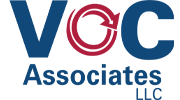In today’s fast-paced and competitive job market, professional growth is not just a sweet enhancement to one’s career but the very essence of success. Whether you’re a recent graduate setting foot into the corporate world or a seasoned professional navigating the complex maze of your industry, the quest for continuous improvement is one that never ceases. Professional growth is both the vehicle and the roadmap to career advancement, allowing individuals to expand their horizons, harness new skills, and remain vital and relevant in their chosen field. But how does one cultivate professional growth? And why is this so vital? These are the questions we’ll tackle.
Gain Knowledge
 Professional growth is the evolving process of developing new skills, gaining knowledge and experience, and advancing in one’s professional life. It encompasses more than just promotions; it’s an aspirational voyage of self-improvement and personal development. This continual process is vital for not only the individual’s career success but also for the progress and innovation within their organization and the industry as a whole.
Professional growth is the evolving process of developing new skills, gaining knowledge and experience, and advancing in one’s professional life. It encompasses more than just promotions; it’s an aspirational voyage of self-improvement and personal development. This continual process is vital for not only the individual’s career success but also for the progress and innovation within their organization and the industry as a whole.
The significance of professional growth is evident in the doors it can open. It allows individuals to qualify for higher positions, handle complex duties, and contribute in more meaningful ways. In an era where industries experience rapid change, those who are committed to their growth are the very ones who thrive and, in turn, help their organizations do the same.
Steps
Some steps to achieve professional growth are:
1. Setting Clear Goals
Professional growth without direction is like a ship without a compass—aimless. The first step towards cultivating growth in your career is to define what you want to achieve. Whether it’s a specific job title, a salary milestone, or the achievement of certain skills, setting clear, achievable, and measurable goals is paramount.
These goals should be SMART (Specific, Measurable, Achievable, Relevant, Time-bound) to provide structure and allow for tracking progress. By having a clear vision of the endpoint, you can then plot out the steps to get there, making the seemingly daunting objectives attainable and actionable.
2. Continuous Learning and Skill Development
In a digital world that’s constantly evolving, stagnation equates to regression. Continuous learning, therefore, becomes the oxygen of professional growth. Dedicate time to explore the latest developments in your industry, be it through formal education, online courses, or self-study.
Don’t stop at just consuming information; transform knowledge into practical skills through project work or real-life application. This not only enriches your skill set but also demonstrates to employers your proactive nature, setting you apart as a dynamic and valuable asset.
3. Seeking Mentorship and Networking Opportunities
Mentorship and networking serve as invaluable accelerators of professional growth. A mentor can provide guidance, share their experiences, and offer advice on career decisions, while a robust network can provide leads on job opportunities, collaborations, and information exchange.
Actively seek out mentors within and outside your organization and expand your network through industry events, professional associations, and social networking. These relationships can offer fresh perspectives, support in professional development, and even collaborative opportunities that can pitch-fork your career forward.
4. Embracing Challenges and Taking Risks
Comfort zones are where dreams go to hibernate, not thrive. Professional growth often comes from challenging assignments, unfamiliar tasks, and taking calculated risks. It is in these moments of discomfort that we learn the most about our capabilities and potential.
Volunteer for projects that lie outside your typical scope of work, participate in cross-functional team, or even consider lateral job moves to acquire new skills and experience. The temporary discomfort can yield substantial and long-lasting professional benefits, including expanded confidence and competence in diverse areas.
5. Reflecting on and Evaluating Progress
Lastly, reflection and evaluation are critical components of the growth process. Regularly assess your progress against the goals you’ve set. What have you accomplished? What obstacles have you encountered?
Reflection provides insights into what’s working, what’s not, and what adjustments are needed to stay on the path to professional development. It also allows for the celebration of achievements, no matter how small, boosting motivation and morale in the pursuit of greater milestones.
Benefits
The tangible and intangible benefits of professional growth are numerous and far-reaching. Employees who invest in their growth often experience increased job satisfaction, as they are more engaged in their work and see the direct connection between their efforts and organizational success.
Furthermore, those who actively cultivate their professional development are often the first to be considered for promotions and are better equipped to seize new opportunities as they arise. By consistently adding value through enhanced skills and knowledge, these individuals solidify their positions as top talent within their fields.
Tools and Resources for Professional Development
Thankfully, in an age of information, professional development resources are more accessible than ever. Online learning platforms offer a myriad of courses from the top institutions and industry experts. Workshops and conferences provide opportunities for interactive and immersive learning experiences, and industry certifications lend formal recognition to your growing skill set.
Make it a habit to regularly scan for these resources and invest in them appropriately. Whether it’s learning a new programming language, honing negotiation skills, or deepening your understanding of emerging business models, these tools can be the levers that catapult your professional growth.
Challenges
 Despite the clear benefits, the path to professional growth is often riddled with challenges. The most common include overcoming the inertia of staying in one’s comfort zone, dealing with the potential setbacks of failing in new endeavors, and finding the optimal work-life balance required to pursue development activities outside of the regular workday.
Despite the clear benefits, the path to professional growth is often riddled with challenges. The most common include overcoming the inertia of staying in one’s comfort zone, dealing with the potential setbacks of failing in new endeavors, and finding the optimal work-life balance required to pursue development activities outside of the regular workday.
To overcome these challenges, it is crucial to build a support network, develop resilience, and manage time effectively. Understanding that setbacks are part of the growth process and ensuring that self-care remains a priority can help mitigate these hurdles.
Information
Visit VOC Associates to gain comprehensive information on professional growth, as well as a wide range of other topics related to medicine, dentistry, and lab equipment. Whether you’re seeking the expertise of seasoned professionals or looking for valuable insights, our dedicated team is here to assist you. Conveniently located in Ohio, we are just a phone call away at (216) 496-6884. Reach out to us today, and let us guide you on your journey towards success.








